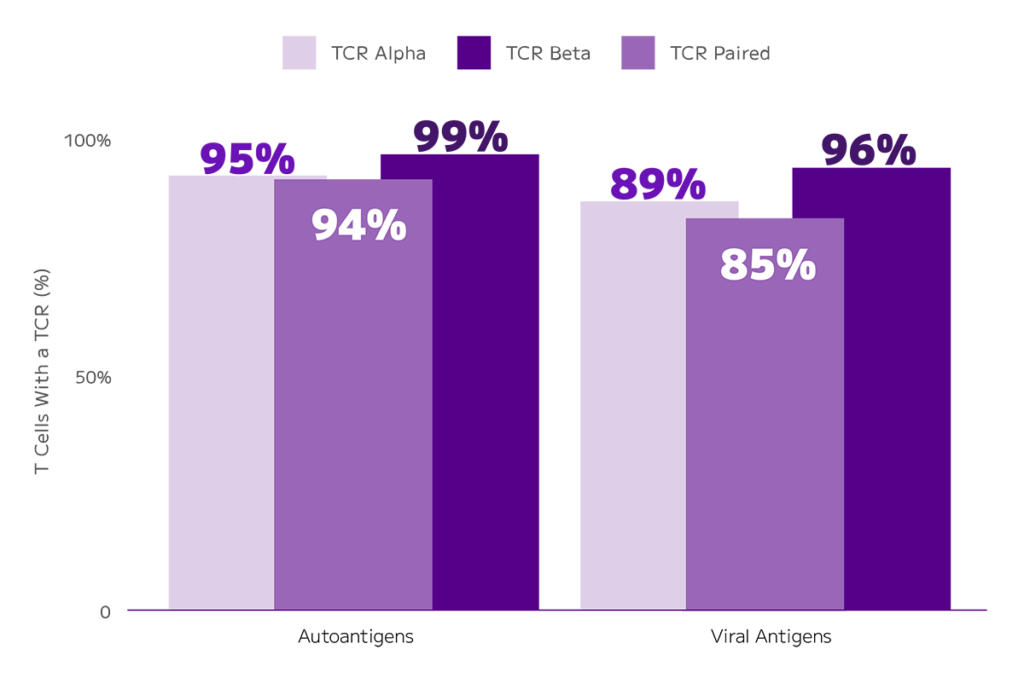TCR Sequencing of 1 Million Antigen-Reactive Human T Cells in a Single Experiment
Key Takeaways
- Simultaneously profile the gene expression and TCRs of up to 1 million T cells.
- Accurately characterize the TCR clonotype diversity and link CDR3 sequence motifs to antigen recognition.
Evercode TCR was used to profile over one million human T cells stimulated with tumor, viral, and autoantigens and as well as non-stimulated T cells from three donors as controls.
Pan T cells were isolated from 15 human donors’ PBMCs and fixed using the Evercode Cell Fixation Kit to stabilize the cell structure and protect the RNA transcriptome from degradation. Fixed samples were stored at -80°C until all samples were ready for further processing in a single experiment with the Evercode TCR Mega kit. Whole transcriptome and TCR specific libraries were sequenced on Illumina Novaseq X. The data was analyzed with Parse Biosciences Analysis Pipeline v1.3.0.

Figure 1: Human T Cell Profiling after Various Antigen Stimulations. 1,381,232 isolated human T cells were clustered by sample type. Samples within similar antigen groups clustered near each other.
The assay demonstrated high sensitivity, detecting paired TCR alpha and beta chains in 85-94% of T cells (Figure 2).

Figure 2: TCR Chain Detection for Two Representative Sample Groups. Paired alpha and beta detection varied between 85-94% of cells.
Next Steps
- Review a more comprehensive description of Evercode TCR in the Evercode TCR Technical Brochure.
- Visit the Evercode TCR product page for Evercode TCR product highlights.
We're your partners in single cell
Reach out for a quote or for help planning your next experiment.